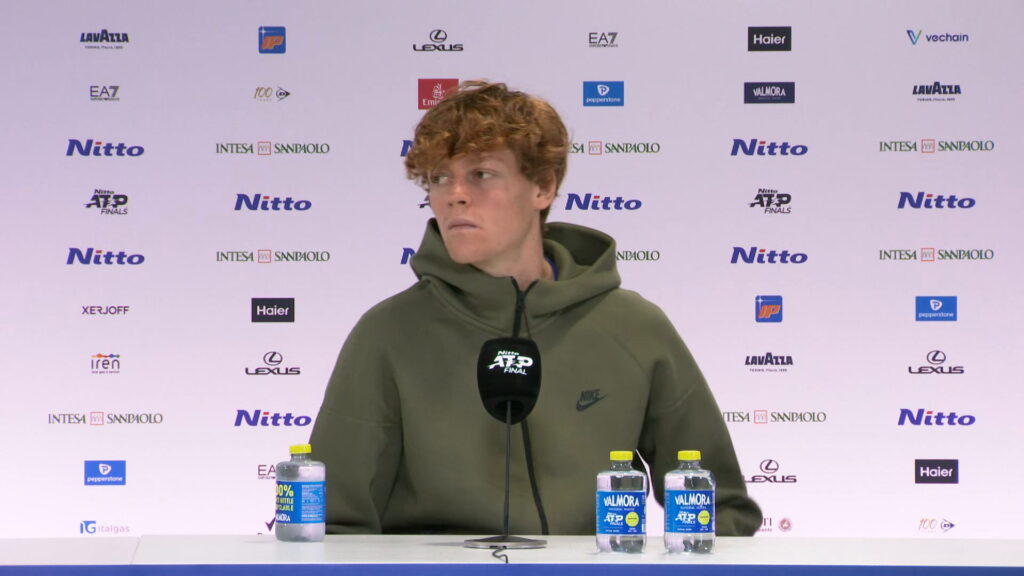
Audience
- Sentiment: Mixed
- Political Group: Neither
- Age Group: 18-35
- Gender: Both
Overview
- Jannik Sinner received a three-month ban for a doping violation due to inadvertent contamination, not intentional cheating.
- The decision has sparked controversy and debate within the tennis community regarding fairness and consistency of doping punishments.
- The situation raises important questions about ethics in sports and the responsibilities of athletes and their teams.
Jannik Sinner’s Doping Controversy: What It Means for Tennis and Its Future
Imagine winning a prestigious Australian Open title, standing atop the tennis world and feeling on top of the world only to have it all turned upside down. That’s precisely what happened to Jannik Sinner, a prodigious talent in the world of tennis, who recently snatched his third Grand Slam title at the Australian Open. However, shortly after this jubilant victory, he faced a massive setback when news broke that he would be banned for three months due to a doping violation. It sounds shocking, right? But the reason behind this ban is even more surprising; it’s not that Sinner intentionally tried to cheat. Instead, his case stems from inadvertent contamination by a banned substance—a mistake reportedly involving his physiotherapist.
Doping in sports, especially in tennis, sparks intense discussions and strong opinions. Players who break the rules can cause harm not just to their own careers but also shake the very foundation of the sport, affecting the trust and admiration fans place in it. Doping involves using banned substances to enhance performance, which is why organizations like the World Anti-Doping Agency (WADA) work to ensure fair play. When accusations of doping arise, the entire sports community pays close attention. In Sinner’s case, WADA initially pushed for a more extended suspension, but later agreed that the young athlete should not face harsh punishment because he had no intention to cheat. This led to a settlement allowing Sinner to return just in time for the highly anticipated French Open.
The decision to hand Sinner a mere three-month ban instead of something more severe has caused quite a stir in the tennis community. Skepticism and frustration have emerged, with many—including former champions like Stan Wawrinka and Simona Halep—questioning whether justice had truly been served. They feel that the decision appears to be filled with inconsistencies that could undermine the sport’s integrity. Players worry that allowing someone to return so soon could convey a message that doping violations might not carry serious consequences, which could impact how fans view the sport and the players within it.
One of the most heated debates through all of this has been about fairness. Criticism has surfaced, suggesting that there are double standards when it comes to how doping cases are handled. These matters are complex, and fans must grasp the nuances. For instance, WADA’s failure to apply the same standards across different athletes raises significant questions about the criteria for punishments. If Sinner only received three months for a mistake he didn’t intend to make, what about other athletes in different situations? Was their punishment too severe or, potentially, too lenient? This notion of “fair play” in sport is crucial, and it’s where the discussions often become emotional, with stark opinions dividing players and fans alike.
Given that Sinner’s camp firmly insists he is not culpable for what happened—blaming a mistake made by his physiotherapist—it brings to light the responsibilities of players and their teams. Athletes are often under a lot of pressure to perform at elite levels and may overlook caution when it comes to what treatments and substances they use. Yet, it’s essential for athletes to stay informed and cautious about everything they put into their bodies. The ATP Tour (Association of Tennis Professionals) has reminded players that it’s their duty to manage the substances they and their teams use, further complicating how blame is allocated in Sinner’s case. While it might be easy to feel sympathy for Sinner and his situation, this incident serves as a cautionary tale for all involved in the sport.
The varied reactions to Sinner’s eventual return to competition showcase the division among players and fans. While some are eager to see him back on the court, others express doubt, wondering whether he deserves to compete again so soon. Such a divide not only raises concerns about fairness among athletes but also affects spectators’ perceptions of the game. Fans naturally desire to support players who uphold the sport’s integrity. As idealistic as it sounds, we want to believe that every athlete is working hard, staying clean, and striving to achieve their goals without unfair advantages.
Now that Sinner will be back in action at the French Open, the tennis community will watch closely. Will fans welcome him back with open arms, or will there still be lingering doubts about his integrity as a player? More importantly, how will this situation influence future discussions on doping policies in sports? The call for transparency and consistency in sanctions has been echoed by many within the community. To maintain the sport’s credibility, changes might need to be made to ensure that similar incidents do not occur in the future.
The Sinner case raises several important questions about ethics in sports. What happens when an athlete is caught in a situation beyond their control? How can sports organizations foster a culture where athletes take responsibility for their health without succumbing to insecurities or pressures to perform? These questions are essential as we think about fairness in sports and the future direction of the game we love.
It’s fascinating—almost like a cliffhanger in a novel—how the outcome of this story could change not just Jannik Sinner’s career but also impact the entire sport of tennis. It leads to an excitement mingled with uncertainty as we await further developments.
As tennis fans, we should encourage open discussions about these topics and engage with the sport more deeply. What do you think about Jannik Sinner’s three-month ban? Do you believe that athletes should face harsher punishments for doping violations? Or do you think the system needs flexibility for innocent mistakes? Please share your thoughts in the comments! Your opinion matters, and the conversation is only beginning.




